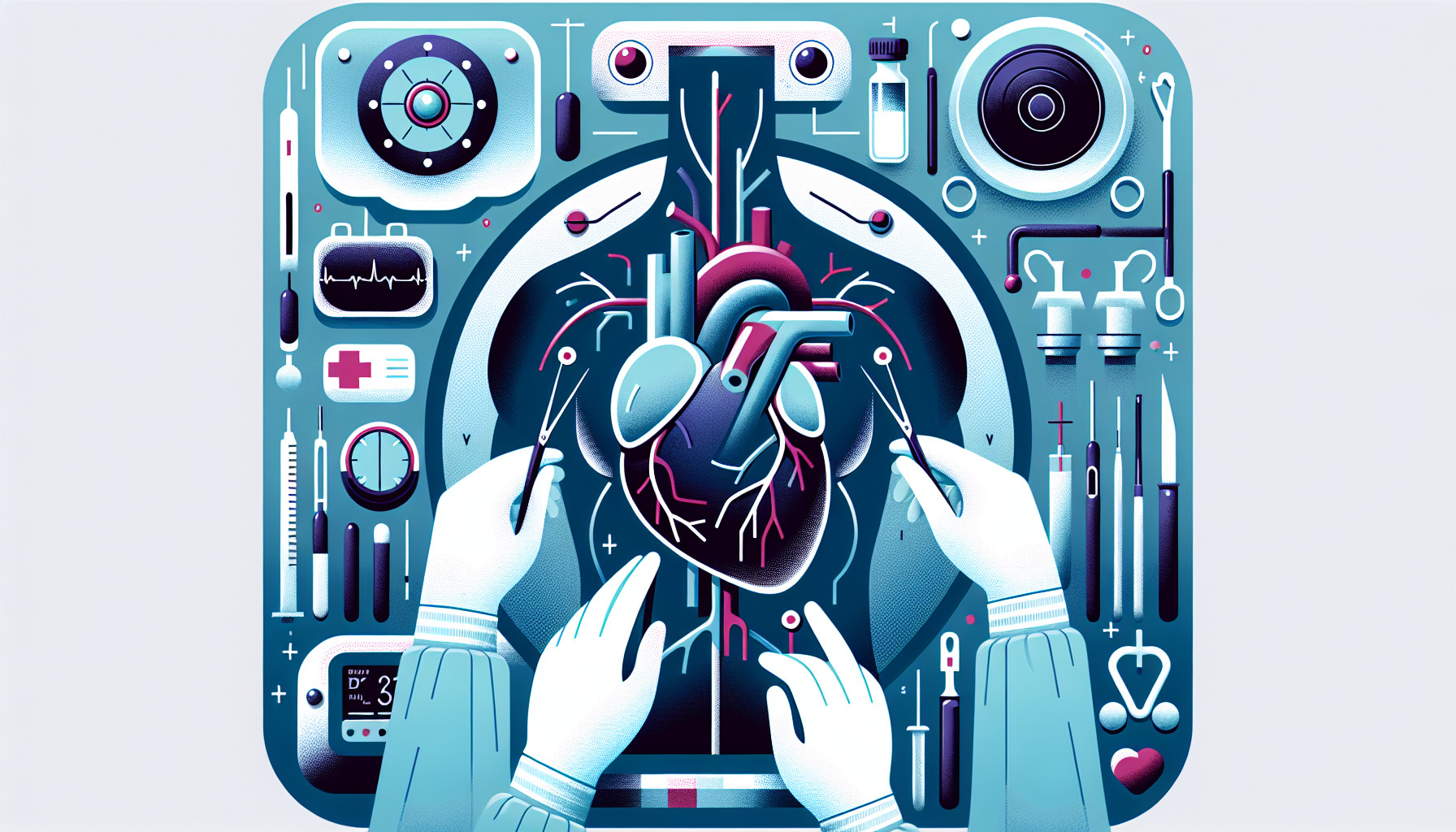Our Summary
This research paper is a review of various studies on a technique called hybrid coronary revascularization (HCR) for patients with multiple blocked coronary arteries. HCR combines two procedures: coronary artery bypass grafting (CABG), which is a type of open-heart surgery, and percutaneous intervention, which is a less invasive procedure to open up blocked arteries.
The research available so far includes three studies where participants were randomly assigned to different treatments, ten evaluations of multiple studies together (meta-analyses), and 27 studies that look back in time at what happened to patients (retrospective studies).
The results suggest that HCR is particularly beneficial for patients with a lower to medium risk and less complicated heart artery disease. For patients with more complicated heart conditions and risk factors, the traditional CABG approach seems to be better in terms of fewer adverse events and better survival rates.
The conclusion is that HCR is a promising approach for treating patients with multiple blocked heart arteries but it’s not suitable for everyone. More research is needed to identify which patients are most likely to benefit from this combined approach.
FAQs
- What is hybrid coronary revascularization (HCR) and how is it used in treating multivessel coronary artery disease (CAD)?
- What were the main findings from the literature on HCR according to the systematic review?
- Who are the patients most likely to benefit from hybrid coronary revascularization according to the study?
Doctor’s Tip
One helpful tip that a doctor might tell a patient about coronary artery bypass is to follow a healthy lifestyle after the procedure, including regular exercise, a balanced diet, and taking prescribed medications as directed. This can help improve the long-term success of the surgery and reduce the risk of future heart problems.
Suitable For
Patients who are typically recommended for coronary artery bypass include those with multivessel coronary artery disease, low-to-intermediate risk, and less complex coronary anatomy. Patients with highly complex disease and the presence of risk factors may be better suited for conventional CABG in terms of adverse events and survival. Further studies are needed to specify the subset of patients who are likely to benefit most from the hybrid approach of hybrid coronary revascularization.
Timeline
Before coronary artery bypass surgery:
- Patient undergoes diagnostic tests such as angiography to determine the extent of coronary artery disease.
- Patient may undergo medical management and lifestyle changes to control symptoms and reduce risk factors.
- Patient may undergo percutaneous coronary intervention (PCI) as a temporary solution to relieve symptoms.
After coronary artery bypass surgery:
- Patient is monitored closely in the intensive care unit immediately after surgery.
- Patient is transferred to a regular hospital room once stable.
- Patient undergoes rehabilitation and recovery process to regain strength and function.
- Patient may need to make lifestyle changes and take medications to prevent further complications.
- Patient undergoes regular follow-up appointments with healthcare providers to monitor progress and address any concerns.
What to Ask Your Doctor
Can you explain the difference between traditional coronary artery bypass grafting (CABG) and hybrid coronary revascularization (HCR)?
Am I a good candidate for HCR, or would traditional CABG be a better option for me?
What are the potential benefits of HCR compared to traditional CABG in my specific case?
What are the potential risks or complications associated with HCR that I should be aware of?
How experienced are you and your team in performing HCR procedures?
How long is the recovery time expected to be for HCR compared to traditional CABG?
Will I still need to take medications after undergoing HCR, and if so, what type of medications will I need?
How often will I need follow-up appointments after HCR, and what will be monitored during these appointments?
Are there any lifestyle changes I should make or activities I should avoid after undergoing HCR?
Can you provide me with any additional resources or information about HCR to help me better understand the procedure and its outcomes?
Reference
Authors: Nenna A, Nappi F, Spadaccio C, Greco SM, Pilato M, Stilo F, Montelione N, Catanese V, Lusini M, Spinelli F, Chello M. Journal: Future Cardiol. 2022 Mar;18(3):219-234. doi: 10.2217/fca-2020-0244. Epub 2022 Jan 10. PMID: 35006006
